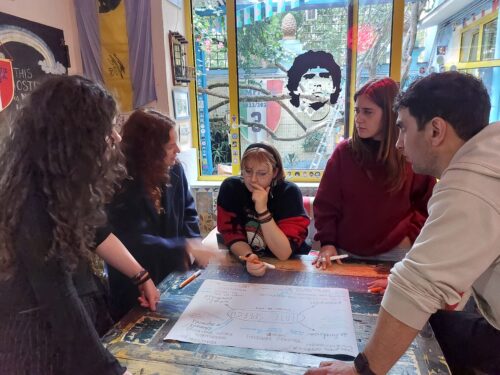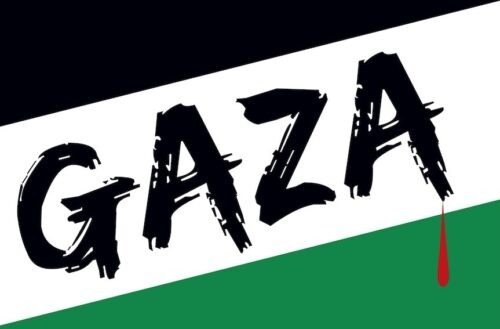Rep. Max Rose of New York, chair of the counter-terrorism subcommittee, submitted a letter to the US State Department co-signed by 39 members of Congress. It urged the department to designate the Azov Battalion (a far-right paramilitary regiment in Ukraine), National Action (a neo-Nazi group based in the U.K.), and Nordic Resistance Movement (a neo-Nazi network from Scandinavia) as terrorist organizations.
Arsen Avakov, Ukraine’s Interior minister, spoke up in support of the Azov Regiment against the motion by 40 USA congressmen to designate the unit as a terrorist organisation. This happened during his meeting with the deputy head of the US diplomatic mission in Ukraine, Christina Quinn. Avakov called reports “shameful” that Nazi ideology was spreading among the personnel of this unit. According to the head of the Ukrainian Ministry of Internal Affairs, this “information campaign” is aimed at discrediting the “Azov”, primarily, “in creating international partners of Ukraine”, as well as creating a crisis in relations between Kiev and partners. “It is the combat effectiveness of the Azov special forces in protecting the state from military aggression that is the true reason for trying to stop it with another, hybrid, method … Together we will repulse these dirty and dangerous methods,” Avakov said.
Bohdan Yaremenko, the chair of Ukraine’s Parliament international committee, writes in his Facebook of the decision to send a letter to 40 US congressmen who previously called the State Department to include the Azov in the list of terrorist organizations. Yeremenko states that Ukraine is going to protect the Azov unit by offering Washington their cooperation in obtaining “objective and unbiased information”. Yeremenko is a deputy from the Servant of the People’s parliamentary group. He states that he has prepared the draft letter which he offers to co-sign as a measure “to protect the glorious unit”. The letter is to be transmitted to the USA on October 29.
In response to the demand to the US State Department submitted by 40 American congressmen to designate the Azov Regiment (part of the National Guard of Ukraine) as a terrorist organisation, the regiment issued a statement accusing the signatories of the letter (the US Congress counter-terrorism subcommittee) of interfering in Ukraine’s affairs and undermining its security.
Volodymyr Ishchenko, a sociologist studying social protests in Ukraine, the Deputy Director of the Center for Social and Labor Research, comments on recent developments: In details by Bellingcat “I just need to comment about ‘hijacking’ of veterans issues by extreme nationalists. One reason is that the very issues are not that ‘neutral’ and, of course, not good. This is a nationalist war. Most of those who volunteered (were not conscripted) to fight in it are, of course, not ideological Nazis, yet they see the conflict through the nationalist lens. They see Ukrainian citizens on the other side of the frontline as enemies or enemies’ puppets and collaborators, who did not have any just reason behind them. It is impossible to imagine any anti-nationalist veterans’ event or organization. If they are not far right, they are tolerant of the far right. Extreme nationalists are a completely legitimate part of this social group and not without cause. This is important to understand why this incident happened, how the prime minister happened to attend a neo-Nazi event. It is not enough to say that he is an ignorant fool and that the government was trying to calm the far right before their planned ‘anti-capitulation’ rallies on October 14. Nothing in Prime Minister Honcharuk’s lived experience would have warned him against speaking and endorsing extreme nationalists. This is a norm in Ukrainian civil society and Honcharuk is a typical representative of this civil society: a director of a “reformist” NGO, a recipient of Western grants, a leader of a small liberal party. But what could he know about the Ukrainian far right in these circles? That Ukrainian fascism is a Russian propaganda myth? That, perhaps, the Ukrainian far right exist but they are small, marginal, unpopular, insignificant and any other opinion is treacherous and helps Putin? What else could he read about Ukrainian radical nationalists from Ukrainian or even many of the Western press? From the people who made their career as ‘experts on Ukrainian far right’? Why would the prime minister decline the invitation to attend the ‘veterans party’ organized, perhaps, by a bit radical, yet good patriotic men who fought ‘for Ukraine’? This incident is an absolutely logical consequence of a stunning, bigoted denialism of the nature of the war in Donbass and of the strength, legitimacy, and danger of radical nationalists in this country”.
On October 25 a petition to President Zelensky to condemn the US congressmen’s demand to identify the Azov as a terrorist group was opened for signing on the official webpage of the Ukrainian president. As of October 27, it collected more than 1200 signatures.







